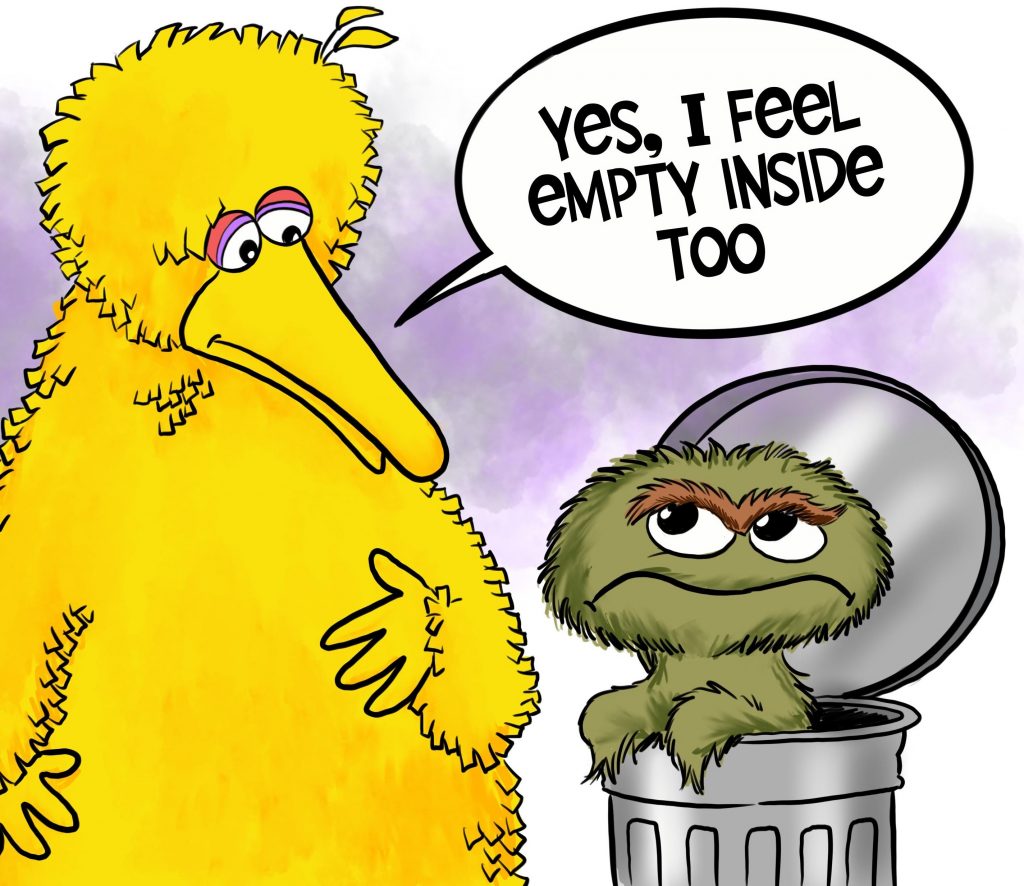
“Street Gang,” a documentary about the origins of the children’s show, Sesame Street, inspired a fantasy in the mind of the child within me. The film tells its audience that the show’s purpose from the beginning was to depict characters representing all the cultures of its audience—as living productive lives. The movie also unveils ugly things behind the show’s scenes, like groups objecting to the producers’ multi-racial focus.
My fantasy would take advantage of the golden opportunity the show’s producers in particular and our culture in general are missing: to bridge the gap between the many differences separating us and the singular spirit uniting us.
At a critical point in Sesame Street’s actual evolution, one of the actors who played the beloved and elderly Mr. Hooper died. The secular press praised the show as courageous for how it wrote the character out of the show—having various adult characters explain to childlike Big Bird that Mr. Hooper was gone and never coming back—surviving only in our memories.
Scripture tells a different story. My fantasy episode of Sesame Street would be influenced by the solemnity of the Body and Blood of Christ. It would help the parents in the show’s audience build a bridge for their children between the show’s past and present, just as the liturgy for this holy day bridges the gap between an old covenant based on death (Ex 24:3-8) and a new one based on the eternal life made possible by the sacrifice of Jesus.
The second reading for this mass has St. Paul telling the ancient story of humanity’s attempts to sacrifice animals in reparation for humanity’s corruption (Heb 9:11-15).
For if the blood of goats and bulls and the sprinkling of a heifer’s ashes can sanctify those who are defiled so that their flesh is cleansed, how much more will the blood of Christ, who through the eternal Spirit offered himself unblemished to God, cleanse our consciences from dead works to worship the living God.
The gospel shows Jesus using our appetites for bodily sustenance to grow our yearning for spiritual sustenance. He used bread and wine–foods closely tied to human culture—to give us a sacrifice that would last throughout the ages (Mk 14:12-16, 22-26).
“Take it; this is my body,” he said of the bread. Then he took a cup, gave thanks, and gave it to them, and they all drank from it. He said to them, “This is my blood of the covenant, which will be shed for many. I shall not drink again the fruit of the vine until the day when I drink it new in the kingdom of God.”
My fantasy episode of Sesame Street would be aimed at freeing those among the show’s adults who are bound by the laws of mortality and have trouble grasping the promise of eternal life. As Paul once explained to the Romans, “You are not under the law, but under grace.”
The grace Christ made possible by his death offers an insight into the timeless power of our soul.
My episode would conclude with one of the show’s adult cast members having a heart-to-heart with a sad Big Bird.
“Let’s talk about the gifts the churches up and down our street tell us we are born with, Big Bird—faith, hope and love. Yes, Mr. Hooper died, but faith teaches that those gifts help us build the bridge leading to a life beyond this one.”
“You’re crazy,” Oscar the Grouch would say. “Nobody can prove that.”
But Big Bird would light up and say, “Nobody can prove that death is the end, either, Oscar.”
The End (Not).
–Tom Andel